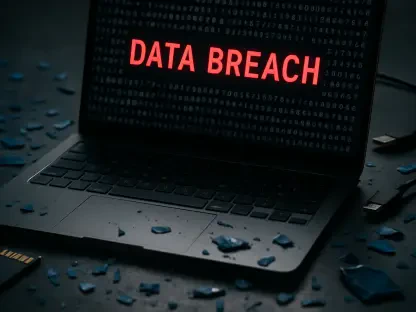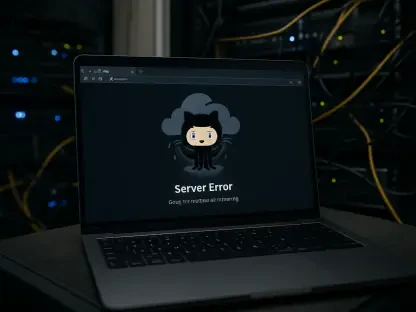The recent data breach at Change Healthcare has had far-reaching consequences, particularly in Nebraska, disrupting crucial healthcare services and exposing significant vulnerabilities in the healthcare system’s cybersecurity measures. This breach, which compromised the personal and medical information of approximately 575,000 Nebraskans, began on February 11, 2024, when attackers exploited login credentials exposed on a Telegram group known for selling stolen information. The breach went undetected until February 21, 2024, when the ransomware group BlackCat encrypted Change Healthcare’s systems, forcing a shutdown of its operations and affecting patients and healthcare providers on a massive scale.
Scope and Impact of the Data Breach
Over the course of nine days, attackers extracted terabytes of sensitive data, including Social Security numbers, financial information, and electronic health records, impacting millions of patients across the United States, with approximately 575,000 Nebraskans among those affected. The compromised data included highly sensitive personal and medical information, putting individuals at risk of identity theft and financial fraud. Victims faced the immediate threat of their private information being used maliciously, compounding the difficulties already presented by a healthcare system forced to halt operations.
The breach’s impact extended beyond just data theft, causing significant disruptions to healthcare services across Nebraska. Hospitals, pharmacies, and clinics struggled to process insurance claims or access vital patient information, resulting in an operational halt that persisted for weeks. This situation created a cascade of challenges, leading to delayed medical care, denied prescriptions, and heightened susceptibility to scams. The interruption not only placed an enormous burden on healthcare providers but also left patients in precarious situations, unable to receive the timely care they required.
Disruption to Healthcare Services
The breach forced Change Healthcare to shut down its operations, sparking a domino effect on healthcare services throughout Nebraska. Hospitals, pharmacies, and clinics faced significant challenges in processing insurance claims and accessing patient information, which led to widespread delays in care and denied prescriptions. Additionally, the healthcare sector became more vulnerable to scammers impersonating legitimate providers to steal financial information. These disruptions highlighted the critical need for robust cybersecurity measures in the healthcare sector, as the breach left many unable to navigate the administrative complexities of the healthcare system in real time.
Larger healthcare systems experienced tremendous financial losses, amounting to millions of dollars daily, while smaller rural hospitals faced existential threats. Nebraska’s 62 critical access hospitals, which operate on very thin margins, had to rely on cash advances or reserve funds to remain operational. The financial strain on these institutions was immense, underscoring the importance of maintaining strong cybersecurity measures to protect both financial and operational integrity. This disruption also highlighted the resilience required from healthcare providers in the face of crippling cyberattacks.
Alleged Security Failures
The lawsuit filed by Nebraska Attorney General Michael T. Hilgers against Change Healthcare, UnitedHealth Group, and Optum shed light on several alleged security failures that contributed to the severity of the breach. Change Healthcare’s systems reportedly ran on decades-old technology, and UnitedHealth, which acquired Change Healthcare in 2022, was aware of these vulnerabilities. Congressional testimony from UHG’s CEO revealed that Change Healthcare relied on outdated physical servers instead of more secure, cloud-based solutions, exposing the company to greater risk.
Further allegations in the lawsuit pointed to a lack of basic security measures, such as Multi-Factor Authentication (MFA) and proper network segmentation. These lapses allowed hackers to move freely within the network, exacerbating the breach’s impact. The lawsuit argues that these security failures played a significant role in the severity of the breach and the subsequent disruption to healthcare services. The accusations raise questions about the responsibilities of companies handling sensitive information and emphasize the need for modern, rigorous security protocols.
Delayed Notifications and Legal Action
The Nebraska Attorney General’s office has accused Change Healthcare of delaying notifications to affected individuals, further compounding the breach’s impact. Despite the breach occurring in February 2024, notifications only began in late July following the Attorney General’s insistence. This delay contravened Nebraska’s Financial Data Protection and Consumer Notification of Data Security Breach Act, which mandates prompt notification to allow individuals to take protective measures against potential identity theft or fraud.
The lawsuit seeks civil penalties, restitution for affected residents, and injunctive relief to prevent similar incidents in the future. It emphasizes the defendants’ failure to meet basic data protection standards despite handling highly sensitive personal and medical information. By taking legal action, the Nebraska Attorney General aims to hold Change Healthcare, UnitedHealth Group, and Optum accountable for their role in the breach and its devastating consequences. This case underscores the importance of timely and transparent communication in managing data breaches.
Financial Ramifications for Healthcare Providers
The breach had significant financial ramifications for healthcare providers in Nebraska, forcing many institutions to take drastic measures to maintain operations. Larger healthcare systems incurred substantial costs transitioning to new claims processors, taking loans, or liquidating assets. The financial burden on these larger systems was immense, but their resources enabled them to navigate the crisis with greater resilience. However, smaller rural hospitals, which were already operating on thin margins, faced more dire consequences, with some experiencing existential threats due to the financial strain caused by the breach.
Nebraska’s 62 critical access hospitals had to rely on cash advances or reserve funds to sustain operations during the disruption. The financial strain on these institutions underscores the critical need for robust cybersecurity measures to protect against such breaches and the importance of holding corporations accountable for data protection failures. The breach highlighted the vulnerability of smaller healthcare providers within the broader healthcare system and underscored the significant impact that such cybersecurity incidents can have on their continued operation and ability to provide care.
Broader Implications for Cybersecurity Standards
The recent data breach at Change Healthcare has had widespread consequences, notably impacting Nebraska by disrupting essential healthcare services and revealing critical weaknesses in the healthcare system’s cybersecurity. This breach, which exposed the personal and medical information of around 575,000 Nebraskans, occurred on February 11, 2024, when attackers misused login credentials found on a Telegram group notorious for selling stolen data. The breach continued undetected until February 21, 2024, when the ransomware group BlackCat encrypted Change Healthcare’s systems. This forced a shutdown of its operations, significantly affecting patients and healthcare providers on a large scale. The incident underscores the urgent need for enhanced cybersecurity measures in the healthcare industry to protect sensitive information and ensure the uninterrupted delivery of healthcare services.









